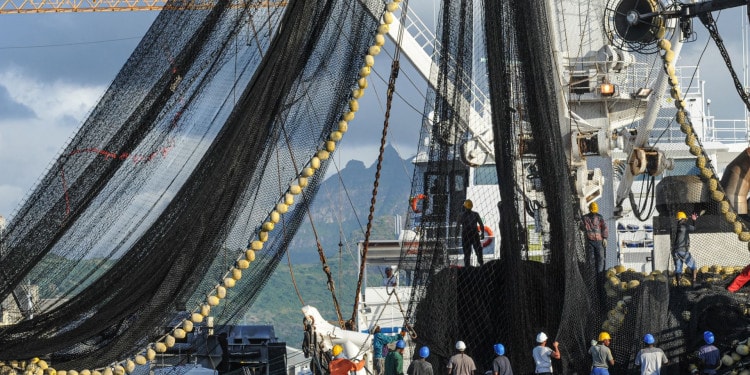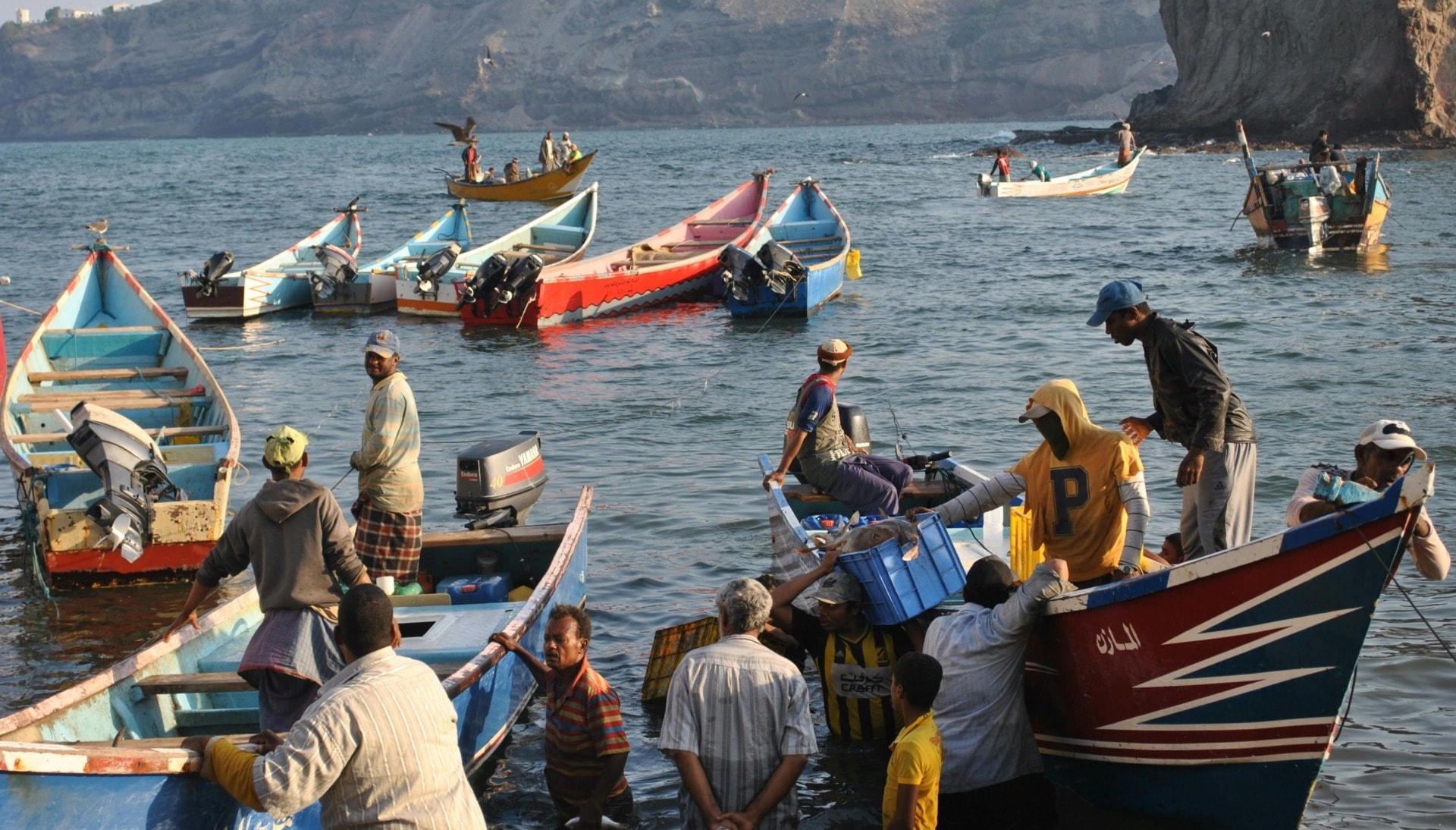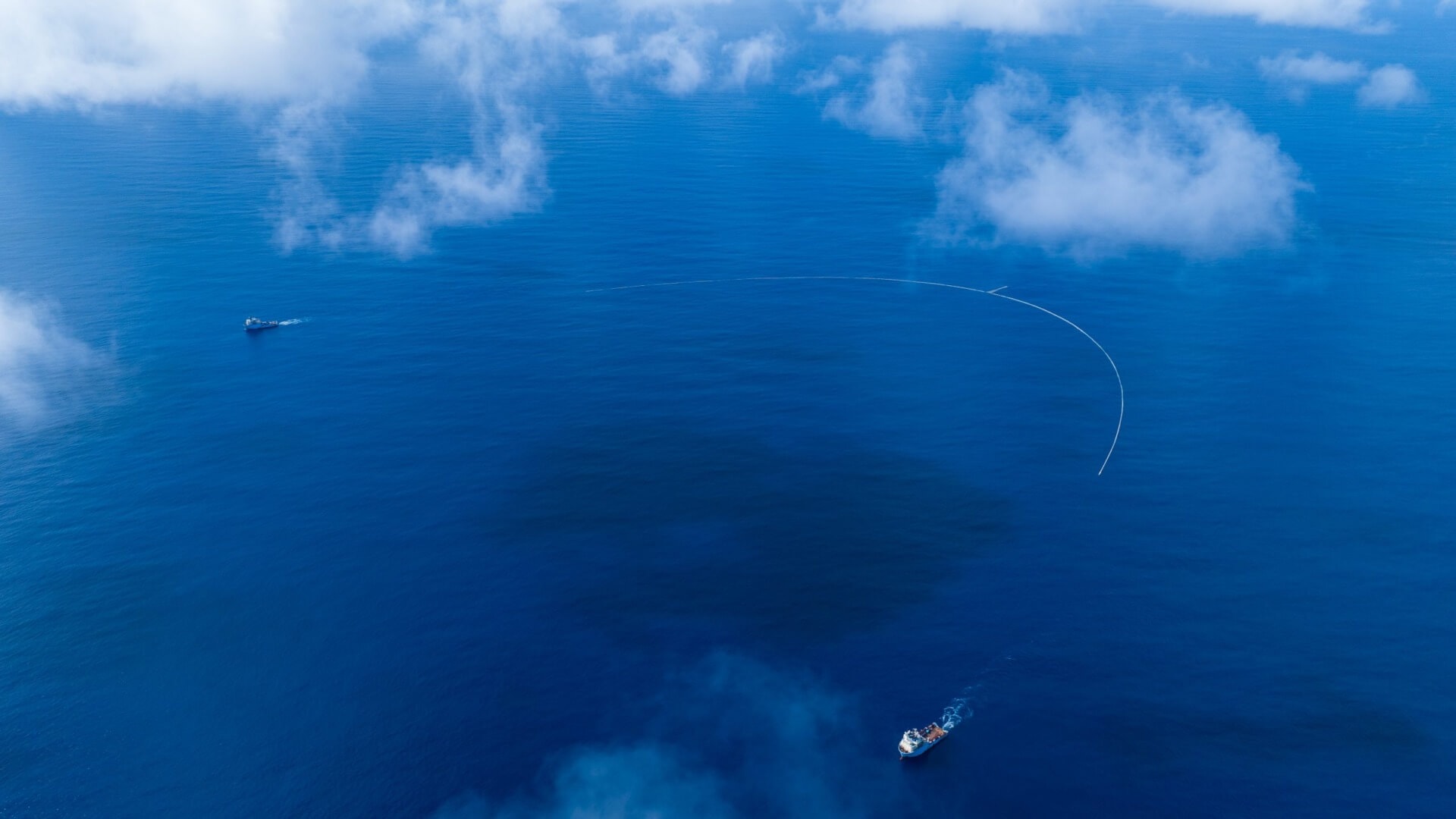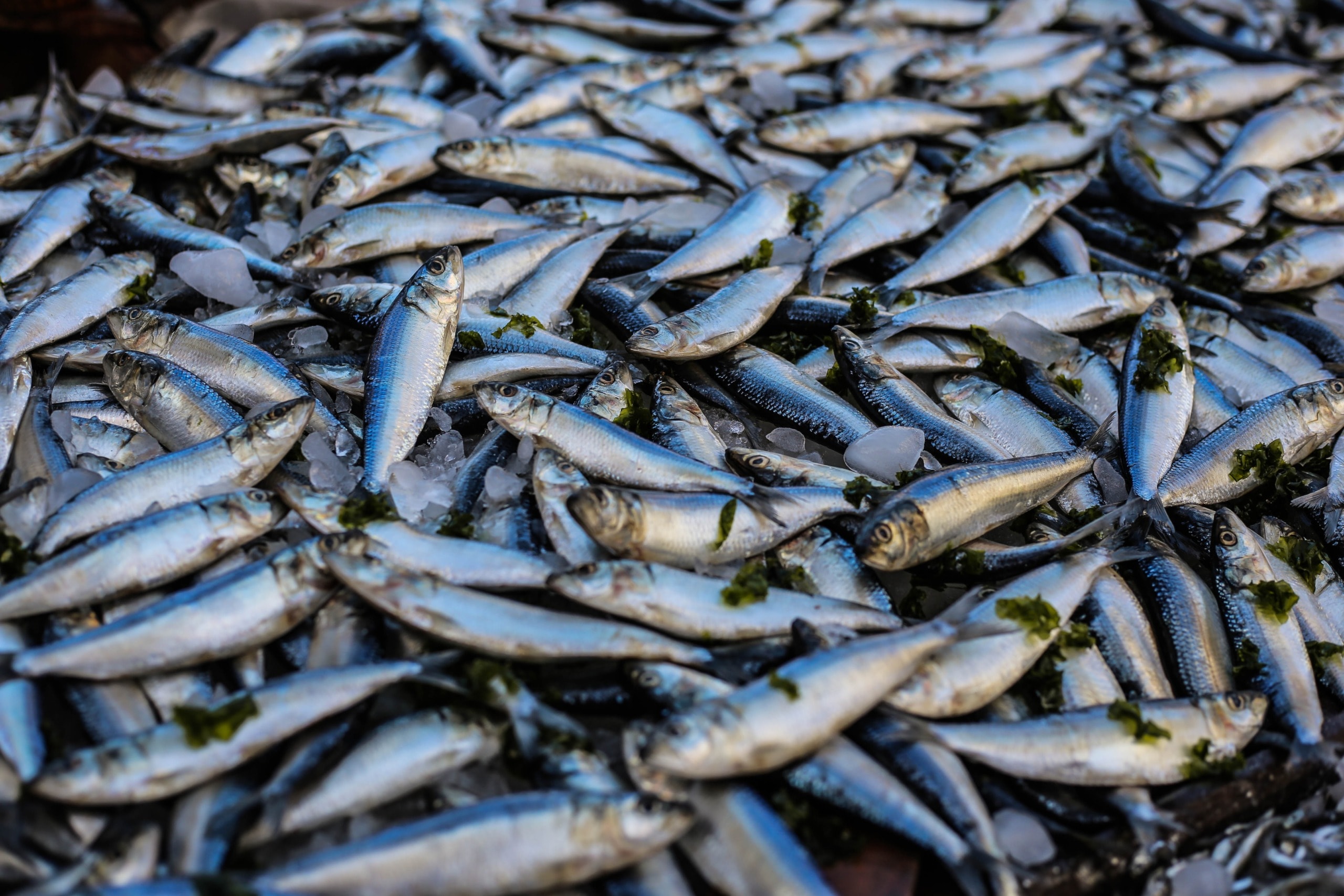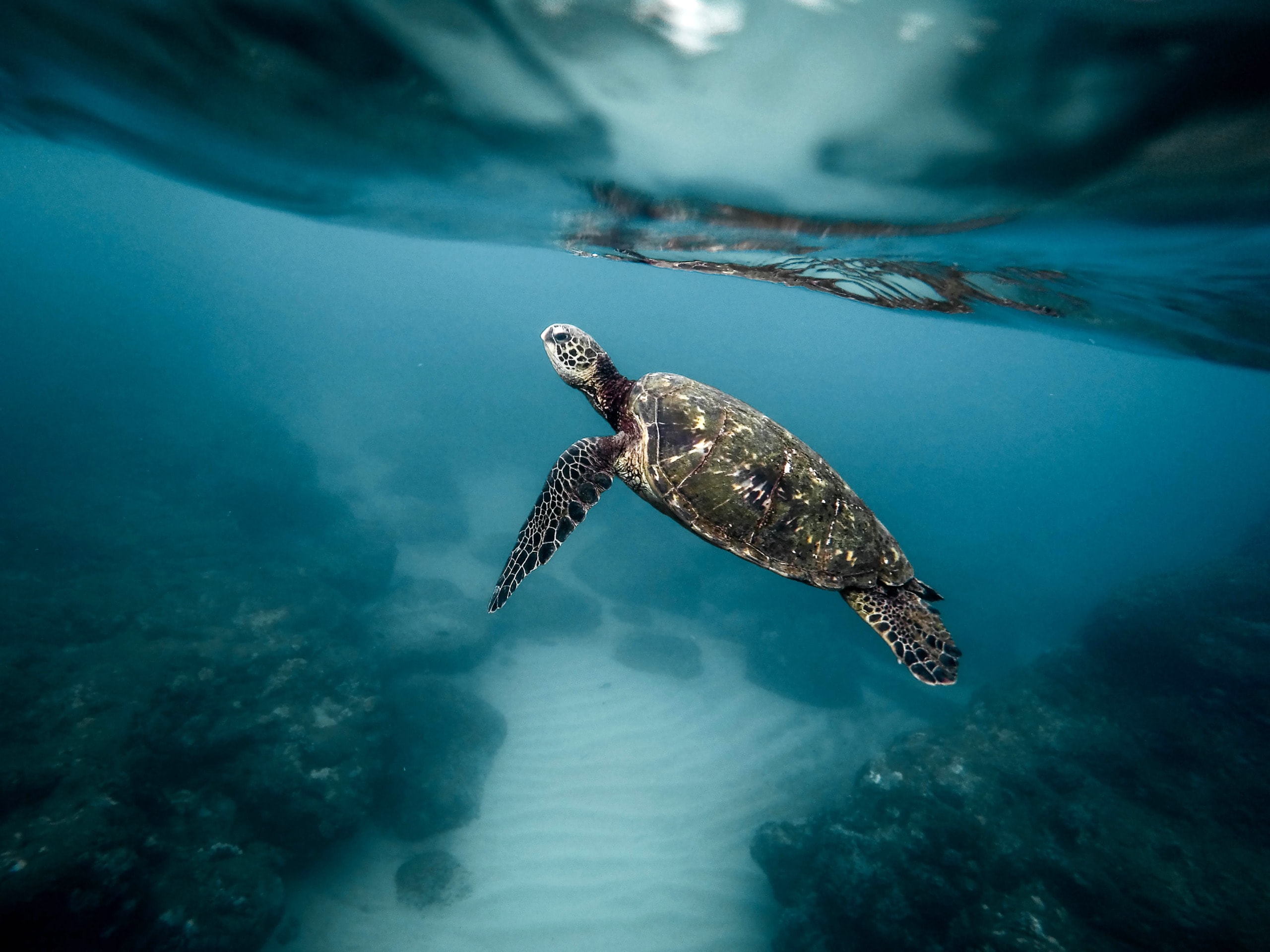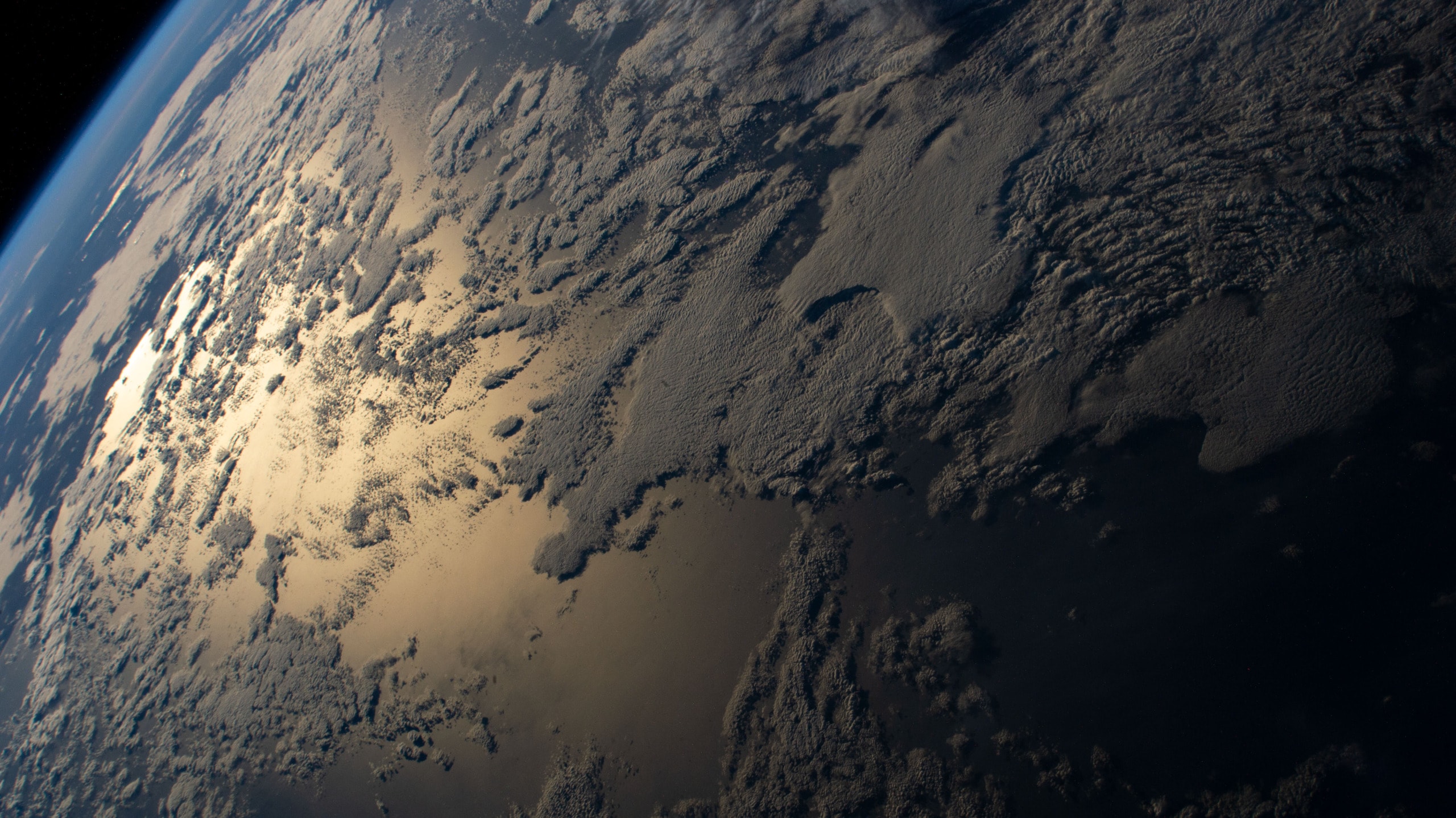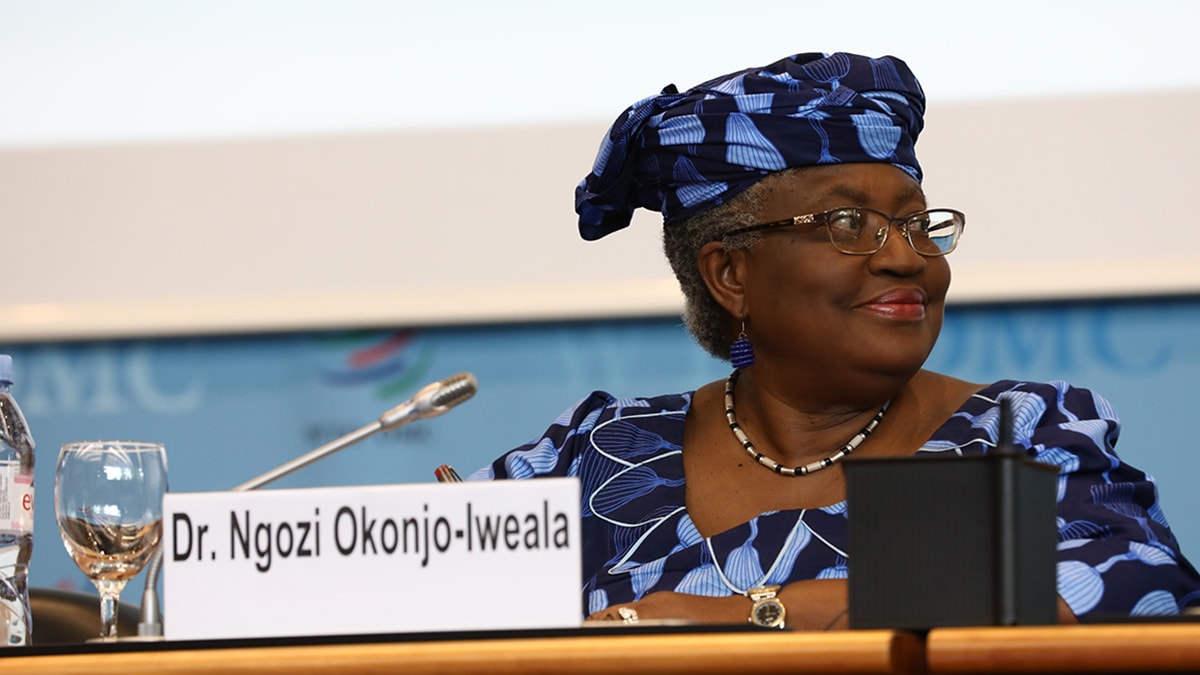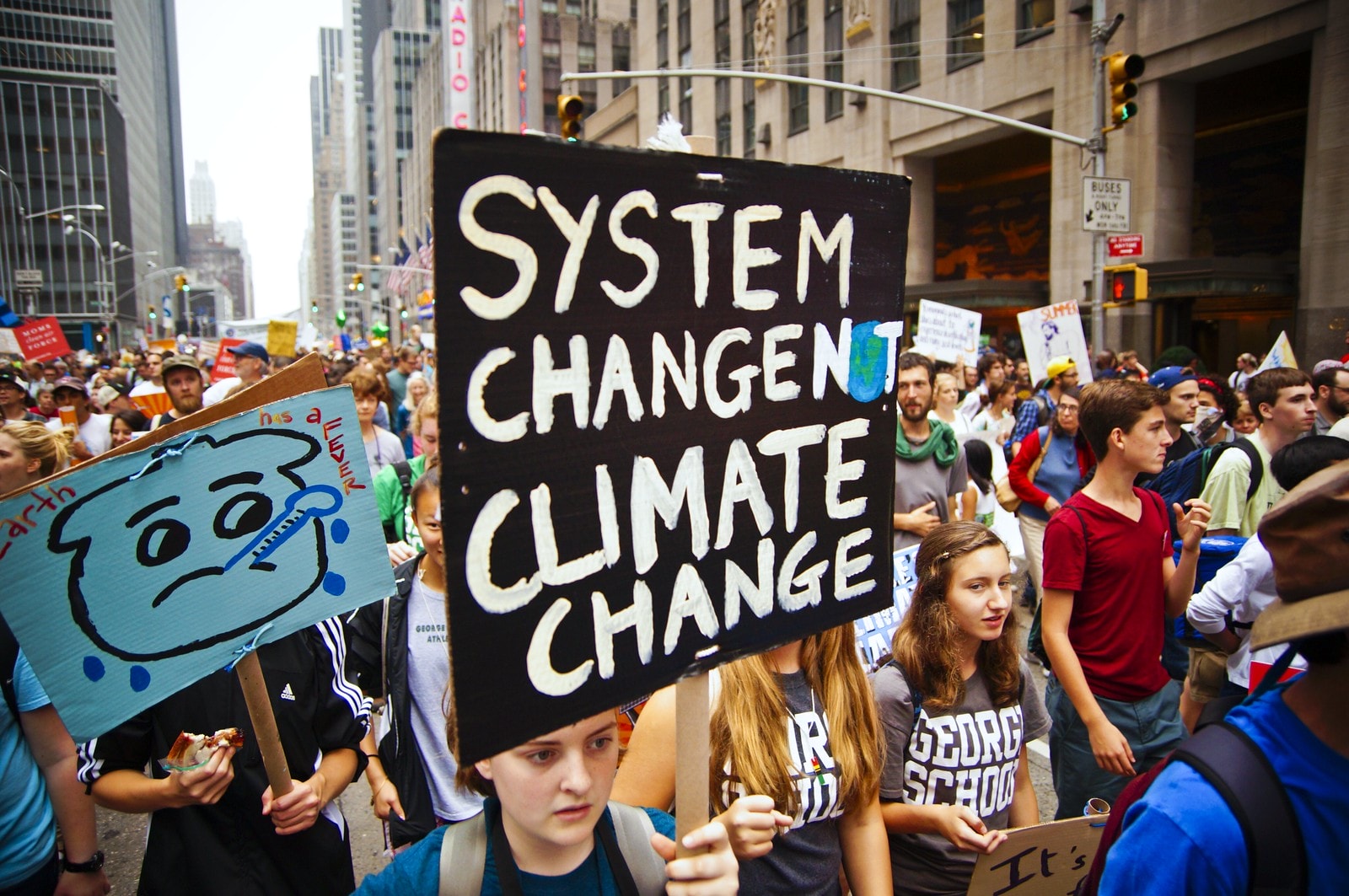More than one third of the world’s fish stocks are overexploited. Our ocean is already suffering. And right now, billions of dollars in government subsidies just encourage more fishing.
The good news is that we have an opportunity to end harmful fisheries subsidies, helping people and the planet while meeting one of the targets for Sustainable Development Goal (SDG) 14. World Trade Organization (WTO) members are currently negotiating new rules for fisheries subsidies in line with this objective. They have until the end of 2020 to reach an agreement.
How could putting a stop to these subsidies benefit our ocean and those who rely on it? We’ve collected 25 reasons why the WTO must reel in a deal this year to remind negotiators why reaching an agreement is so important.
Reason 1: Invest public funds in people and the planet.
Much of our ocean is being fished beyond sustainable limits, undermining the livelihoods of the hundreds of millions who depend on fishing for food security and jobs. Despite this, our governments spend USD 22 billion in public money every year to fund more fishing.
The good news is that we have an opportunity to stop this race to the bottom. In a year acutely characterized by health, economic, and climate crises, it’s more important than ever that leaders put public funds toward the public good.
Rather than continuing support for detrimental fishing practices and overexploitation of our ocean’s resources, this WTO agreement is an opportunity to redirect public money from harm to help.
Reason 2: Reduce overfishing.
Harmful fisheries subsidies unbalance the fishing industry, incentivizing vessels to catch and remove fish faster than stocks can replenish. The UN Food and Agriculture Organization has said that 34% of the world’s assessed fish resources are overfished, a proportion that has been steadily increasing since the 1970s, when it was only around 10%.
Related Articles: Our Ocean, Our Future: global action to achieve SDG 14 | Using the Ocean As a Tool for Global Economic Recovery
This means that we need to act now to protect our marine resources and stop this downward spiral before it’s too late. To bring our fishing levels back in line with a healthy ocean, we must end harmful fisheries subsidies that encourage overexploitation.
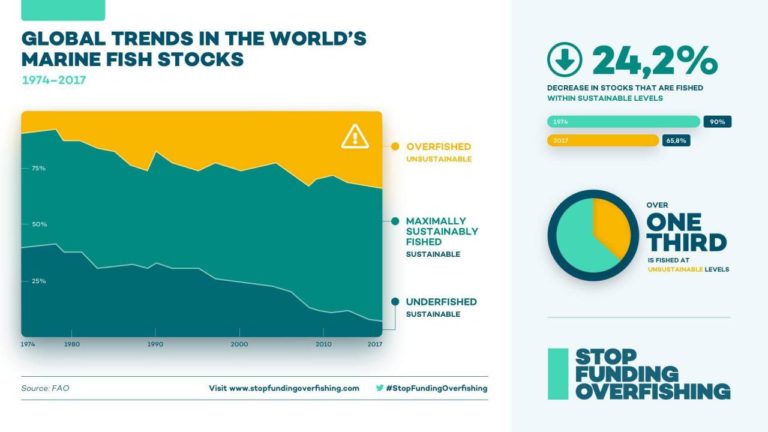
Reason 3: Support global food security.
Fish make up more than 17% of all animal protein we consume, and in the least-developed countries, this number jumps to 26%. In some coastal communities, fish can even make up 80% of animal protein consumed. As our global population increases and demand for protein multiplies, preserving the ocean’s ability to feed people is vital.
Wealthy countries account for about 60% of global fisheries subsidies, leaving many other fishing-dependent communities struggling to compete with subsidized rivals, often risking their lives for smaller and smaller catches. Ending these harmful subsidies will help safeguard the billions who rely on thriving fish stocks for survival and nutrition.
Reason 4: Limit bycatch of sensitive species.
“Overfishing results in depleted fish stocks, which requires a greater fishing effort to catch the same amount of fish that you would catch with healthy fish stocks” said Monica Verbeek, Executive Director of Seas At Risk. She adds, “this greater effort, in turn, results in the deaths of many sensitive species, like dolphins, that get entangled in the fishing gear and die.”
Overfishing has close ties to bycatch, the collateral catch of other marine life by fishing vessels targeting a different species. Bycatch is a threat to ocean life and is especially damaging to endangered species like some dolphins and sea turtles.
Diminishing fish stocks due to overexploitation mean we need to increase fishing activity just to continue catching the same number of fish. In turn, more fishing activity leads to more bycatch, as vulnerable species get entangled in fishing gear. By limiting overfishing with a deal to rein in harmful fisheries subsidies, we can help address urgent conservation issues.
Reason 5: Prove that environment and trade can work hand-in-hand.
If there is one topic on which the WTO members should easily agree, it’s ending subsidies that drive overfishing. We have to be better at making both trade and environment work hand in hand.
– Pascal Lamy, former WTO Director-General
WTO member governments have many difficult decisions to take as they respond to the COVID-19 pandemic. But now, perhaps more than ever, we need to come together to solve urgent problems as a global community.
Disciplining harmful fisheries subsidies would be a clear, concrete, and visible step in WTO history toward integrating trade and environmental protection to the benefit of both areas. This would reaffirm belief in the WTO’s ability to address sustainable development issues at a vital moment for the organization and multilateralism.
Reason 6: Protect and improve the livelihoods of small-scale artisanal fishers.
Year by year, fish catch keeps decreasing, and this year has been the worst of it.
– Nana Kwedja, local canoe owner in Abandze, Ghana
Even though many more fishers are employed by small-scale fisheries than industrial fleets, experts estimate that 81% of governments’ fisheries subsidies benefit large industrial fleets. This distorts access to marine resources at the expense of the many artisanal fishers for whom fishing is both a matter of survival and the heart of a rich cultural identity.
In some countries, subsidies can make up half the income of some industrial vessels—without the distortion of subsidies, these large-scale operations would likely be unprofitable. A meaningful agreement to end harmful fisheries subsidies is needed to give small-scale fishing communities in Ghana and around the world a chance of survival.
Reason 7: Rebuild fish stocks.
Without the fish stocks there will be no fisheries, there will be no fishing jobs, there will be no seafood for us.
– Rashid Sumaila, Prof and Director of the Fisheries Economics Research Unit at the University of British Columbia
Many of our fish stocks are in trouble due to severe overfishing—and without fish stocks, we would lose our fisheries, our fishing jobs, and food security for billions. By removing harmful fisheries subsidies, we will remove pressure from fish populations suffering from overexploitation.
Over time, reduced fishing will allow many of our fish stocks to recover and become plentiful again. As fish populations bounce back, fisherpeople will have more catch opportunities.
By protecting fish stocks, we can restore balance in our ocean and keep vulnerable marine ecosystems healthy. An agreement would help people by helping nature, keeping our fisheries sustainable far into the future for the millions who rely on them.
Reason 8: Fulfil an SDG 14 target by deadline.
“In these final weeks of negotiations on the ending of harmful subsidies, I urge all WTO delegations to seize the opportunity, here and now, to stay true to the sustainable development agenda and do the right thing for people and planet” said Peter Thomson , United Nations Secretary-General’s Special Envoy for the Ocean and co-chair of Friends of Ocean Action.
The United Nations Sustainable Development Goals (SDGs) give us a clear blueprint to achieve a better and more sustainable future for all. One of these global goals is SDG 14: Life Below Water, or the “ocean” goal—to conserve and sustainably use the ocean, seas, and marine resources for sustainable development.
A key SDG 14 target is to prohibit subsidies that contribute to overfishing. While we still have a long way to go on many SDG targets, this is one of the most attainable and will also help make progress on several other vital targets under SDG 14. All we need to do is reel in the deal on harmful fisheries subsidies.
Reason 9: Restore the ocean’s health and abundance of life
A global deal to end harmful fisheries subsidies is the next vital step in the restoration of our oceans to their former abundance and diversity.
– Sir David Attenborough
A healthy, vibrant, productive ocean is within our reach, to the benefit of all humanity. But we are standing in our own way by providing billions of dollars in harmful subsidies to keep fleets fishing even when, in some cases, there are too few fish for operations to be profitable.
Many people and organizations are already showing how investment in local coastal communities can lead to remarkable underwater recoveries, but we need international action as well if we want to be successful in protecting marine life. A WTO deal on harmful fisheries subsidies is essential to our global mission to restore the ocean’s abundance, biodiversity, and vitality.
Reason 10: Free up funds to heal our ocean
Alexandra Cousteau, Oceana Senior Advisor, commented “by bringing an end to harmful fisheries subsidies, governments across the globe can free up funds that could be better spent to protect our ocean and support fishing communities. Today, using public funds responsibly is more important than ever.”
Scientists estimate that governments spend USD 35 billion of public money per year on global fisheries subsidies, with USD 22 billion of these subsidies incentivizing more fishing. At the same time, an ever-increasing number of fish stocks are being exploited beyond sustainable levels.
Rather than funding more fishing in a way that harms lives and livelihoods, these resources could make a positive difference by supporting sustainable fisheries, aquaculture, and coastal livelihoods.
Reason 11: Promote sustainable fishing.
“The misuse of fishing subsidies has created a distorted sea dominated by large fishing companies using potentially destructive fishing gears. We would like to see public moneys being used for public good” said Brian O’Riordan, Executive Secretary of the Low-Impact Fishers of Europe.
Up to now, the vast majority of fisheries subsidies have supported larger-scale fishing operations. These subsidies are a direct cause of overfishing and marine ecosystem damage. Such harmful subsidies discriminate against small-scale, low-impact fishing operations, undermining local food security and livelihoods.
Small-scale, low-impact fishers can’t compete with subsidized industrial fleets. These fishers have high social and economic value within the communities they support and beyond, but harmful fisheries subsidies are working against them.
By reaching an agreement to tackle this issue, WTO members would even the playing field in favour of more sustainable operations with a lower environmental impact, benefiting the common good.
Reason 12: Combat illegal fishing practices.
“Harmful subsidies fuel illegal fishing. You know those big boats that are right adjacent to our impoverished coastal communities? They take the fish away from them. They impoverish them even further” explained Dr. Dyhia Belhabib, Principal Investigator, Fisheries, Ecotrust Canada.
Fishing itself isn’t bad for the ocean, but not all fishing operations that receive subsidies follow the rules in place to protect marine life. Harmful fisheries subsidies can fuel illegal fishing using public funds. This negatively affects many coastal communities and the fishers who sustain them.
Illegal fishing also costs governments money: estimates place the total value of illegal and unreported fishing losses worldwide at between USD 10 billion and USD 23.5 billion a year. A WTO agreement on fisheries subsidies would help governments redirect taxpayer dollars to more sustainable priorities while dealing a blow to the bad actors they are currently supporting.
Reason 13: Advance sustainable development globally.
“It’s one of the first steps along the path towards a sustainable future laid out by the Sustainable Development Goals” explained Dr. Richard Florizone, President and CEO of the International Institute for Sustainable Development.
“We must prioritize the SDGs if we are to improve and develop our world in a way that meets our needs today without compromising the lives and the livelihoods of future generations” he adds.
To meet our needs now without compromising those of future generations, we need to make sure we develop our world sustainably. Ending harmful fisheries subsidies is one of the first steps along the path toward a better future laid out by the Sustainable Development Goals (SDGs).
This target has a 2020 deadline, making it one of the first SDG targets to come due. Failure to meet this and other early targets could jeopardize the entire plan, while success would build serious momentum for further positive action—the credibility of the SDG framework is at stake.
Reason 14: Finally tackle a problem we’ve been working on for decades.
Now, they have the mandate. Now, they have the knowledge. Now, they have the power. This is why now is time to make a deal.
– Ricardo Lagos, former president of Chile
This is not a new issue. WTO members recognized harmful fisheries subsidies as a problem nearly 20 years ago. The WTO kickstarted negotiations on this issue in 2002, and the stakes were raised when prohibiting subsidies that contribute to overfishing was enshrined in the United Nations Sustainable Development Goals in 2015.
At the 2017 Buenos Aires Ministerial Conference, ministers made a plan to adopt a multilateral agreement on this issue in time for the SDG deadline. Now, it’s time to reach a deal and finally tackle a problem we’ve been working on for decades.
Reason 15: Build a sustainable future for current generations and those to come.
We need to do everything we can to protect nature, our oceans, the biodiversity on Earth as fast as possible. And we have no choice but to secure a future for my generation and generations to come.
– Penelope Lea, 15-year-old climate activist and UNICEF ambassador
If we are to build a better future in the face of global environmental challenges, we need to rethink our relationship with our blue planet. Fishing our ocean at the rate we are now cannot last. Since business as usual would be devastating for millions, we need to take concrete action through a WTO agreement to end harmful fisheries subsidies.
We need this deal to help protect marine resources and fisheries-based livelihoods for generations to come. This is a critical investment in the ocean, in the planet, and in people—for a more sustainable and equitable way of life.
Reason 16: Avoid devastating ecological and economic impacts.
“Your leaders made a promise to deliver a solution and now is your chance to act. Failure to do so will have devastating ecological and economic impacts, with consequences for the 3 billion people who depend on the oceans for their livelihoods” said John Denton, Secretary-General of the International Chamber of Commerce.
Almost two decades ago, WTO member governments promised in good faith to better discipline harmful fisheries subsidies. There is a clear human, environmental, and economic case for action—and this is our chance to act. The right thing to do is to fulfill this promise with a strong agreement this year.
Delegates have made real progress towards an agreement, but there is still some way to go until they can finally cross the finish line. By keeping this promise, leaders will protect the billions of people in fishing communities and beyond from devastating impacts to both our ecological and economic landscapes.
Reason 17: Develop a sustainable blue economy.
“Unless we make deep, bold changes, the health of the ocean will continue to decline. But the good news is that we have solutions. By combining production and protection, ocean resources can be used in a sustainable way to drive economic growth and development” said Dona Bertarelli, UNCTAD Special Advisor for the Blue Economy and co-chair of the Bertarelli Foundation.
In 2017, the World Bank estimated that unsustainable fishing has led to global fisheries that deliver USD 83 billion per year less in benefits than they could. The only way that fisheries will be able to reach their full economic potential is to put an end to today’s overexploitation of marine resources.
Scientists have found that eliminating all harmful fisheries subsidies could result in an increase of 12.5% in global fish biomass by 2050. An ambitious WTO agreement will support a sustainable blue economy, providing livelihoods and jobs for billions of people who rely on fishing, tourism, shipping, and other ocean sectors.
Reason 18: Increase access to sustainable seafood.
“This is a crucial time right now, to make the right decisions to rather fund regenerative ocean farming and forms of extracting delicious foods from the ocean that are not harmful and that actually create more life” commented Charles Michel, Food Educator, Artist, Activist.
It’s increasingly well-known that our fisheries have a problem—and many consumers want to be part of the solution. The ocean may seem infinite, but our fragile marine resources and ecosystems are in jeopardy.
Harmful fisheries subsidies drive overfishing, putting a strain on many fish stocks and impacting their sustainability. Current fishing systems risk our access to a key source of food for billions, period.
Scientists have said that more than 10% of the world’s population could face nutrient deficiencies driven by fish declines in the coming decades. If WTO members were to stop funding overfishing, this would help fish populations rebound, helping today’s struggling stocks become sustainable, plentiful options again.
Reason 19: Help suppliers source sustainable fish.
“We cannot allow economic growth to continue to degrade the marine environment. A truly sustainable and equitable seafood supply will help preserve ocean biodiversity and productivity for future generations” said John Burton, CEO of World Wise Foods and Chairman of the International Pole & Line Foundation.
Currently, fishing fleets sustained by harmful subsidies catch more fish than the ocean can support. This depletes stocks below sustainable levels, damaging the environment, coastal communities, and fishers.
Billions of people around the world rely on seafood as a key food source, so we need to ensure marine resources and livelihoods are protected by sourcing fish from healthy stocks, caught with fishing methods that minimize negative environmental impacts.
A WTO agreement to end harmful fisheries subsidies will support sustainable suppliers and retailers, in the interest of a healthy economy and marine environment for all.
Reason 20: Protect and restore ocean biodiversity.
“We must now urgently act to protect and restore the ocean’s rapidly degrading biodiversity. A World Trade Organization deal on fisheries subsidies would be a key step in the right direction, enhancing the mutual supportiveness of trade and environment” said Elizabeth Maruma Mrema, Executive Secretary of the United Nations Convention on Biological Diversity.
Overfishing puts enormous pressure on already stressed ocean ecosystems globally, contributing to the loss of marine biodiversity and compromising the livelihoods and nutrition of billions.
The parties to the Convention on Biological Diversity have called for the elimination, phase-out, or reform of incentives, including subsidies, that are harmful to biodiversity—such as fisheries subsidies that drive overfishing.
We must support, protect, and restore ocean biodiversity and a WTO deal on harmful fisheries subsidies is a crucial step toward living in harmony with nature.
Reason 21: Act on the advice of ocean, fisheries, and conservation experts.
174 civil society organizations have signed a statement urging the WTO to tackle harmful fisheries subsidies. These groups include experts on fisheries from economics, policy, and conservation standpoints, and they have all come together to deliver one message.
For the sake of our ocean and coastal communities, WTO members must establish a binding framework that drives the phase-out of all harmful subsidies that contribute to overcapacity and overfishing, and eliminates subsidies to illegal, unreported and unregulated fishing by all member governments.
We must not miss this generational opportunity to replot the course of global fishing fleets toward sustainability, improve the health of ocean ecosystems, and help ensure that the ocean will continue to provide for the many millions who depend on it, now and into the future.
Reason 22: Save the ocean and save ourselves.
Very few benefit from harmful fishing subsidies, but everyone pays and everyone suffers from the consequences of an ocean in trouble.
– Sylvia Earle, Oceanographer, National Geographic Explorer-In-Residence, and Founder of Mission Blue
Slyvia added, “It’s really simple: subsidies foster overfishing. Overfishing causes collapse of vital ocean systems, from coastal coral reefs to the high seas. Stop the subsidies. Invest in sustainable livelihoods. Save the ocean. Save ourselves.”
The ocean covers 70% of our planet’s surface. A healthy ocean is essential for the natural systems we rely on: the water we drink, the air we breathe, the food we eat, and, ultimately, the lives we live. But we are threatening the ocean’s ability to provide these invaluable services.
The WTO fisheries subsidies negotiations are key to recovering ocean health. By agreeing to end subsidies that drive overfishing, the WTO can move to protect our at-risk blue planet, kicking off a new and better era of action for climate, economies, planet, and people.
Reason 23: Reinforce responsible fisheries management.
“Compared to paying large industrial fleets for chasing a growing number of fish stocks in decline, public funding can be used in a lot more sensible areas, such as electronic fishery monitoring to help fight against IUU, an effective MPA network” said Songlin Wang, Founder and President, Qingdao Marine Conservation Society.
Fishing is vital for the nutrition and livelihoods of billions of people, so we must make sure that marine resources and habitats are monitored, regulated, and managed in a way that guarantees a reliable fish supply for current and future generations.
This means that fishing operations and policies must be designed with long-term sustainability at the core. Electronic monitoring to fight illegal, unreported, and unregulated operations; Marine Protected Areas; and sustainable aquaculture are all initiatives that can play an important role in responsibly managed fisheries.
WTO governments should tackle harmful subsidies and use public money to support systems and solutions that will restore the health of our fisheries instead of contributing to their decline.
Reason 24: End a very difficult year on a positive note.
A successful agreement to end harmful fisheries subsidies would be a huge win for people and the planet—and we could all use a win right now.
– Adrian Grenier, Actor, Co-founder of the Lonely Whale Foundation, and UN Environment Goodwill Ambassador
2020 has presented us all with challenge after challenge. This year has been an especially difficult one for multilateralism, international trade, and fishers. A WTO agreement to effectively tackle harmful fisheries subsidies would be a major success story, delivering concrete benefits for people and the planet.
The good news is, WTO members have the knowledge and the power to make that happen. Let’s bring 2020 to a close with something worthy of celebration—global action to protect ocean ecosystems and the communities and people who rely on them. Let’s sail into 2021 on a wave of positive momentum.
Reason 25: Take action on a widely supported issue.
There are more than 25 reasons for the WTO to reach a successful and meaningful end to their negotiations on fisheries subsidies. Finalizing this agreement has an ocean of support from a great variety of stakeholders, including fishers, scientists, economists, environmentalists, non-governmental organizations, government officials, the private sector, youth, and ocean advocates.
They all agree that it’s past time to take the final step and put into action what has long been promised: let’s reel in the deal so people and the planet can reap the many rich benefits of ending harmful fisheries subsidies.
We need all hands on deck to ensure the negotiations are successful. Join us in sharing these reasons on social media to help build up the wave of support and tell WTO members and the world why ending harmful fishing subsidies matters to all of us.
(Content originally posted on www.stopfundingoverfishing.com.)
About the author: Alice Tipping is Lead, Fisheries Subsidies at the International Institute for Sustainable Development. Tristan Irschlinger is a Policy Advisor, Fisheries Subsidies at the International Institute for Sustainable Development.
EDITOR’S NOTE: The opinions expressed here by Impakter.com columnists are their own, not those of Impakter.com. — In the Featured Photo: A commercial fishing boat in Mauritius. Featured Photo Credit: Jo-anne Mcarthur / Unsplash


